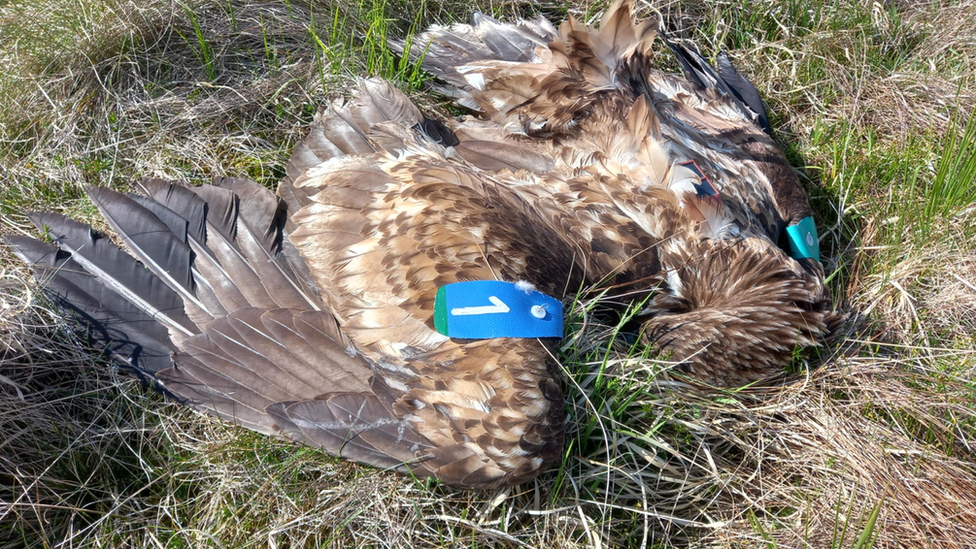RSPB calls for tighter laws on banned pesticides in Northern Ireland
- Published

Since 2009, a total of 13 red kites have been illegally poisoned
A conservation charity is calling for tighter laws around banned pesticides, following the release of its annual Birdcrime report.
Four peregrine falcons and a red kite were poisoned in Northern Ireland in 2022.
The RSPB Birdcrime report revealed the birds of prey died after eating bait laced with illegal pesticides.
Since 2009 a total of 13 red kites have been illegally poisoned.
Two rare white-tailed eagles found dead in County Antrim in 2023 were poisoned.
They consumed bait poisoned with a pesticide only licensed for indoor use, which is often used in raptor incidents.

Two rare white-tailed eagles found dead in 2023 in County Antrim were poisoned
The raptor was persecuted to extinction two centuries ago and a programme of reintroduction has brought them back to the skies in Northern Ireland.
Poisons amnesty
But there is concern that the poisonings could have an impact on the population recovering to a sustainable level.
The RSPB's director of operations in Northern Ireland, Gregory Woulahan, has called on the Department of Agriculture, Environment and Rural Affairs to introduce a poisons amnesty for people to anonymously surrender any stockpile of illegal-to-use or out-of-date pesticides.
"The continued use of banned pesticides in Northern Ireland's countryside is not only a criminal act but it is also dangerous," he said.
"The appalling incident at Glenwherry in the Antrim Hills, where two white-tailed eagles were killed after consuming poisoned bait, brought into focus the impact these chemicals can have, not only on birds, but potentially pets, livestock or even people who inadvertently come into contact with them."
The charity is supporting another campaign group, the Northern Ireland Raptor Study Group, which it says has gathered more than 40,000 signatures in a petition calling for possession of pesticides containing certain ingredients to be made an offence.
Dead or injured birds of prey can be reported by the public either online or by calling the police on 101.
The RSPB has also warned that the continuing bird flu outbreak could mean cases where a criminal act has taken place may be missed, as no diagnostic post-mortem examination is carried out if a dead bird tests positive for the virus.
Related topics
- Published7 July 2023

- Published15 November 2022
